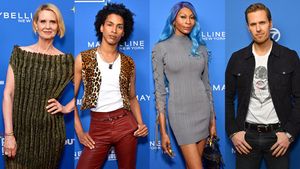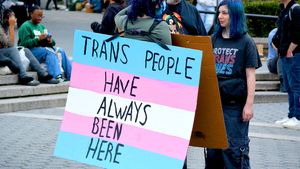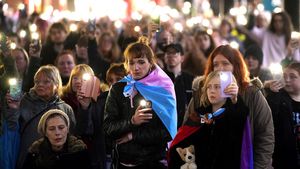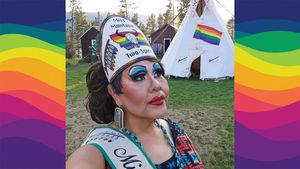Photo: Kate Williams
These days, mental health issues have been discussed more openly than ever. When you take into consideration that the LGBT and queer community tends to be at higher risk for mental health issues, it’s so important that we remain open and honest about our own struggles with mental illness, and reach out when we need help. It’s also important that we’re building a community where people feel encouraged to be open about struggles with mental illness, and supported when they do.
![]()
But, sometimes, we mess up. We end up playing into stereotypes about mental health, and supporting the fetishization of mental health that seems to be taking place in certain parts of the internet. Some people come to believe that mental illness is more like a cute quirk and less like a sometimes all-consuming force that feels so, so inescapable.
And while it may seem like a step in the right direction to be turning mental illness into a good thing, the impact itself is far from positive.
Vlogger and bi musician Savannah Brown’s video on mental health got *so* real about this hugely important issue, calling out Tumblr and other social media platforms where users play with mental illness as if its a game and not a major thing that impacts the lives of many members of our community.
So how can we be better about mental health in our community?
1. Stop turning mental health issues into a trend
While, like Savannah says, it seems “relatable” to have an anxiety disorder, the reality is that anxiety is real, and a really big deal. It goes beyond just being nervous sometimes. It can mean feeling like you’re literally having a heart attack at random points in the week or throughout your day, or can give you sudden bouts of panic that you just can’t get away from. It’s not relatable; it makes it harder to be open about your struggles when they’re all too real.
2. Don’t joke about having a mental illness
For some reason, people love to joke about having OCD and other illnesses. But, just like anxiety and all other mental illnesses, it’s not quirky and cute to have a mental illness. It’s an actual valid, real, lived experience.
3. Avoid playing into harmful stereotypes
Some mental illnesses, like schizophrenia for example, are 100% demonized. We’ve created this divide where there are the “quirky crazy” people, and the “actually crazy” people, and that division does not at ALL help people who have mental illnesses. Learn what it’s actually like to have a mental illness so you understand that these are actual people, not characters you can use to boost your own self-esteem.
4. Do your research
Stay up-to-date on issues of mental health in our community. Did you know that bi women are in a major mental health crisis? Do you know the ways that cultural gender roles shapes the treatment of trans people forced to see therapists? Recognize that anyone can have mental health issues, but not everyone is as likely to struggle with mental health. And, when we do, we’re not all treated the same.



























































































































